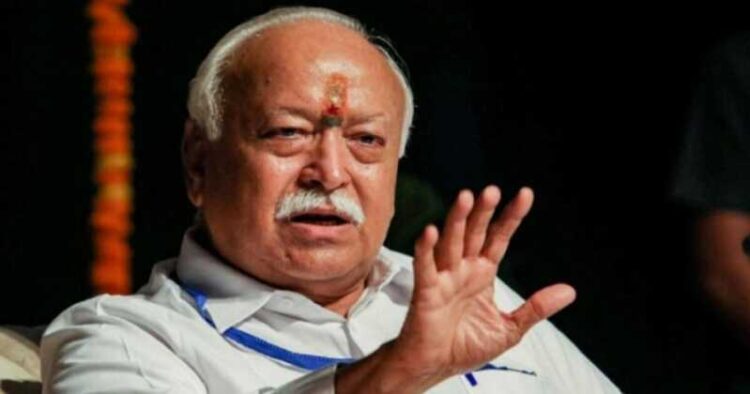In a compelling address, Mohan Bhagwat emphasised the importance of unity, non-violence, and harmony while highlighting India’s rich philosophical heritage. Speaking at an event commemorating the 2550th nirvana year of Jain Tirthankar Mahavira in New Delhi on February 12, Mohan Bhagwat urged people to embrace these principles and asserted that India holds the key to solving the world’s problems.
Mohan Bhagwat began by stating that India possesses the highest order of philosophy, attracting global attention for solutions to contemporary challenges. He pointed out that people around the world are increasingly disillusioned with materialistic lifestyles, seeking deeper meaning and lasting happiness. Mohan Bhagwat underscored the need for individuals to transcend individualism and live harmoniously with others, advocating for non-violence, patience, and ethical conduct.
“All are our own,” Mohan Bhagwat declared, emphasising the unity of humanity despite diverse backgrounds and beliefs. He encouraged people to eschew divisive tendencies and work towards nation-building collectively. Bhagwat emphasised that while different paths may be taken in the pursuit of truth, the ultimate goal remains the same, and India’s unique approach of looking inward sets it apart from the rest of the world.
Mohan Bhagwat lamented the prevalent discord and violence in society, attributing it to a lack of cohesion and pursuit of material pleasures. He cautioned against the destructive consequences of greed and reiterated Mahatma Gandhi’s belief that the universe provides enough for everyone’s needs but not for everyone’s greed. Mohan Bhagwat stressed the importance of strength in understanding and cooperation, rather than aggression.
In Mohan Bhagwat’s view, India’s philosophy holds the key to global peace and happiness. He urged Indians to showcase their inclusive approach and extend a guiding hand to the world. Mohan Bhagwat’s remarks resonated with the audience, underscoring the timeless relevance of India’s spiritual and philosophical traditions in addressing contemporary challenges.
The Sarsanghchalak’s address comes at a time when the world is grappling with various crises, including social unrest, environmental degradation, and geopolitical tensions. His call for unity, non-violence, and harmony serves as a timely reminder of the values that can guide humanity towards a more peaceful and prosperous future.
Mohan Bhagwat’s message transcends political and religious divides, appealing to the universal aspiration for happiness and fulfilment. As India continues to assert its influence on the global stage, its philosophical heritage remains a beacon of hope for those seeking answers to life’s profound questions.
Mohan Bhagwat’s impassioned plea for unity, non-violence, and harmony reflects India’s timeless wisdom and offers a roadmap for a better world. As the nation embraces its role as a global leader, it carries with it the responsibility to share its rich philosophical tradition for the benefit of all humanity.




















Comments